Life
Sign up for our newsletter
We summarize the week's scientific breakthroughs every Thursday.
-
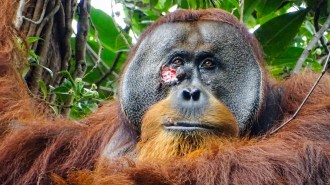 Animals
AnimalsThis orangutan used a medicinal plant on his face wound
Rakus the orangutan appeared to be treating a cut to his face with a plant that’s also used in traditional human medicine.
-
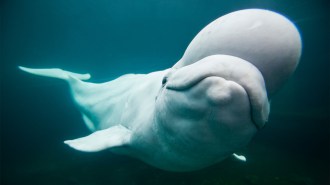 Animals
AnimalsBelugas may communicate by warping a blob of forehead fat
Jiggling the “melon” like Jell-O seems to be associated with sexual behaviors, scientists say.
-
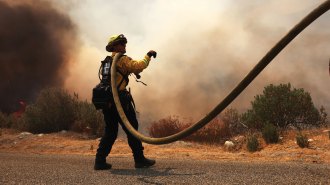 Environment
EnvironmentA new approach to fighting wildfires combines local knowledge and AI
Land managers in the western United States are using potential operational delineations, or PODS, to prepare for — and take advantage of — wildfires.
By Nikk Ogasa -
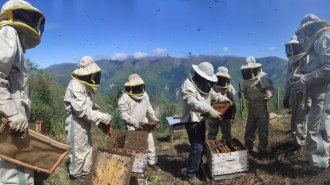 Animals
AnimalsXimena Velez-Liendo is saving Andean bears with honey
By training beekeepers, biologist Ximena Velez-Liendo is helping rural agricultural communities of southern Bolivia coexist with Andean bears.
-
 Health & Medicine
Health & MedicineTraces of bird flu are showing up in cow milk. Here’s what to know
We asked the experts: Should people be worried? Pasteurization and the H5N1 virus’s route to infection suggests risks to people remains low.
-
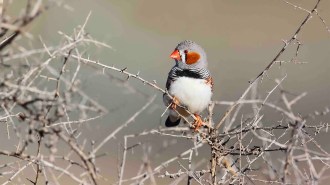 Ecosystems
EcosystemsNoise pollution can harm birds even before they hatch
Exposing zebra finch eggs and hatchlings to traffic sounds had lifelong health impacts, raising concerns about increased anthropogenic noise.
-
 Neuroscience
NeuroscienceRat cells grew in mice brains, and helped sniff out cookies
When implanted into mouse embryos, stem cells from rats grew into forebrains and structures that handle smells.
-
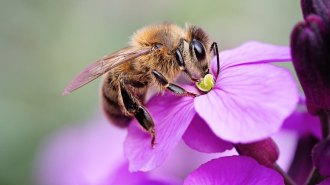 Life
LifeA vaccine for bees has an unexpected effect
Honeybees vaccinated against a bacterial disease were also protected from a viral disease.
-
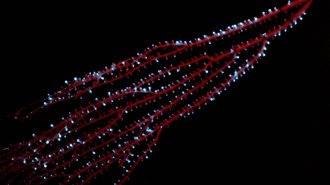 Animals
AnimalsGlowing octocorals have been around for at least 540 million years
Genetic and fossil analyses shine a light on how long the invertebrates have had bioluminescence — a trait thought to be volatile.
By Jake Buehler -
 Plants
PlantsPlant ‘time bombs’ highlight how sneaky invasive species can be
Sycamore maples and some other plant invaders lurked for centuries before starting to choke out native ecosystems and species.
By Susan Milius -
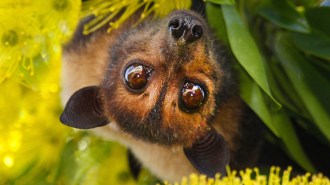 Ecosystems
EcosystemsA new road map shows how to prevent pandemics
Past viral spillover events underscore the importance of protecting wildlife habitats.
-
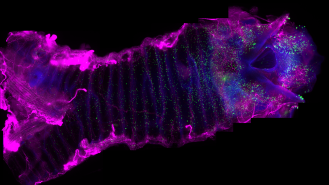 Neuroscience
NeuroscienceThese windpipe cells trigger coughs to keep water out of the lungs
Neuroendocrine cells can sense substances on the way to the lungs and prompt reactions such as coughing and swallowing, experiments in mice show.